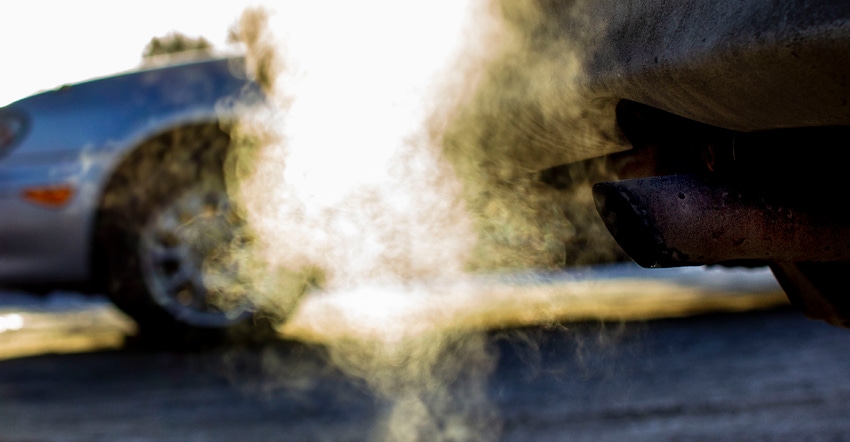
During a Minnesota natural resources legislative committee meeting focused on state efforts to reduce greenhouse gas emissions, the Minnesota Soybean Growers Association provided written testimony voicing opposition to the proposed Clean Cars Minnesota rule.
MSGA President Jamie Beyer testified to lawmakers that Minnesota should not adopt the regulatory energy practices of California to implement greenhouse gas goals. As currently written, MSGA believes the Clean Cars initiative would leave farmers and agribusinesses in regulatory limbo, stunt the environmental progress Minnesota has already made and increase the cost of vehicles for rural residents.
MSGA’s testimony was presented at a Jan. 20 joint virtual meeting with the Environmental and Natural Resources Finance Committee and the Natural Resources Policy and Legacy Finance Committee. Attendees at the meeting discussed the Minnesota Pollution Control Agency’s proposed rule that would require vehicle manufacturers to deliver vehicles to the Minnesota market that produce lower emissions of greenhouse gases and other air pollutants. The Clean Cars Minnesota rule would enable Minnesota to adopt both low-emission vehicle and zero-emission vehicle standards. Other states that have adopted California emissions standards are Colorado, Connecticut, Delaware, Maine, Maryland, Massachusetts, New Jersey, New Mexico, New York, Oregon, Pennsylvania, Rhode Island, Vermont and Washington, as well as the District of Columbia.
“Minnesota has been a leader in reducing greenhouse gas emissions through our own rules and regulations and should remain a leader, not a follower, in this arena,” Beyer wrote.
MPCA officials point out that the state is not on track to meet its GHG reduction goals as outlined in the 2007 Next Generation Energy Act. The legislation calls for reducing GHG by 15% by 2015, 30% by 2025 and 80% by 2050 from 2005 levels. Minnesota did not hit the 2015 target and is not on pace to meet future goals, MPCA says. Some progress was made in the electricity sector, with emissions dropping by almost 30% through a mix of targeted state policy and independent market actions. That leaves transportation as Minnesota’s No. 1 source of GHG, MPCA says.
Presently, more than 40 models of electric vehicles are sold in the U.S., but less than half are available at Minnesota auto dealers. The Clean Cars proposal would offer options for ultra-low or zero-emission vehicles for consumers who want to buy them, MPCA says. The states that have adopted the zero-emission vehicle standard account for a third of all electric vehicle sales in the U.S., which is considerable given how few states have these standards, the agency adds.
MSGA says MPCA uses outdated biofuels research and fails to acknowledge environmental improvements in biofuels.
In 2018, Minnesota moved to B20 (20% biodiesel), retaining its status as a national biofuels leader. Using B20 in the summer months and B5 in the winter already equates to removing the emissions from nearly 230,000 vehicles from Minnesota roads each year.
“Minnesota’s farmers and the biodiesel industry have invested millions of dollars into our industries, and Minnesota’s economy and air quality has benefited greatly from our work,” Beyer wrote.
The Notice of Intent to adopt the Clean Cars Minnesota rule was published Dec. 21 in the State Register.
A new comment period has opened, allowing residents the opportunity to submit questions, comments and feedback to the administrative law judge assigned to this rulemaking by 4:30 p.m. on March 15.
In addition, a virtual public hearing will be held Feb. 22 and Feb. 23, beginning at 3 p.m. both days.
You can submit comments through the Office of Administrative Hearings e-comments website, or by fax or mail according to the instructions in the notice. Or, you can attend the public hearing online and ask your question, share your suggested changes or voice opinions there.
MPCA staff are required to respond to all comments received during the notice period.
Prior to the public hearing, MPCA staff will prepare an initial response to comments and post those on the agency webpage.
For more information on the rulemaking, go to MPCA’s website, pca.state.mn.us/air/clean-cars-mn-rulemaking
About the Author(s)
You May Also Like






